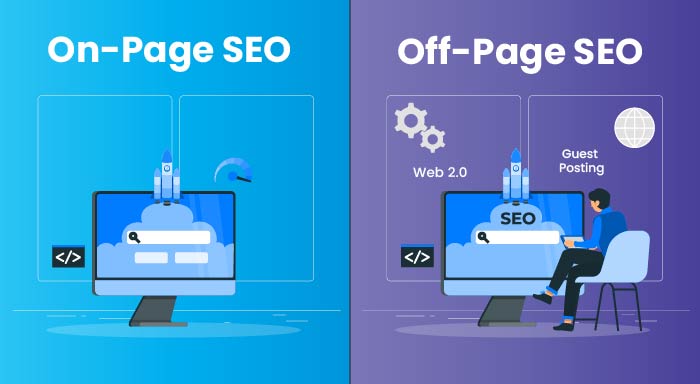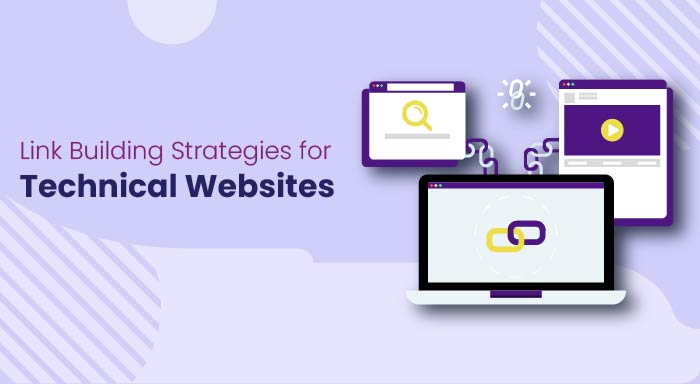Search Engine Optimization (SEO) is a crucial aspect of digital marketing that can make or break your online presence. To effectively optimize your website and improve its visibility in search engine results pages (SERPs), it's essential to understand the two main pillars of SEO: on-page and off-page optimization.
This extensive blog post will focus on the comparison of these two methods of knowledge sharing, as well as their relevance and correct application.
What is On-Page SEO?
On-page SEO is the process of optimizing every webpage individually so that the webpage gets a better ranking and the webpage earns more relevant traffic from search engines. This type of optimization is especially concerned with a page that can be optimized and its contents and HTML source code in particular, unlike off-page SEO which is centered on links and such related elements.
Key Elements of On-Page SEO:
1. High-Quality Content: By developing content that is helpful, informative, and interesting to the users, you have a solid basis for on-page optimization. Your content should meet the user’s needs and offer all necessary information on the subject to the reader.
2. Title Tags: Ensure your title tags include your targeted terms and limit your title tags to 60 characters or less for best visibility on the search results page.
3. Meta Descriptions: Master the art of writing juicy meta descriptions that ought to encompass all the target keywords and at the same time, resume the content of a given page powerfully.
4. Header Tags (H1, H2, H3): It is preferable to employ horizontal lines, particularly for concerns such as headers so that you incorporate key terms where necessary.
5. URL Structure: Design easy-to-understand URLs that have the target keywords and are clean.
6. Internal Linking: Actively infer links to other relevant pages to increase the usability of your site and to distribute the powers of the separate pages.
7. Image Optimization: Utilize a meaningful file name and alt text for the images since they help enhance the accessibility of the website as well as assist search engines in understanding the context of the images used.
8. Page Load Speed: Also, you can make your website faster by reducing the image size, removing whitespaces and characters from codes, enabling the caching system of a browser, and utilizing white label SEO services.
9. Mobile-Friendliness: Make certain that the website that is created is both mobile-friendly and does not slow down.
10. Schema Markup: This should be associated with structured data to assist the search engines in comprehending your content besides getting the search results to display rich snippets.
What is Off-Page SEO?
Off-page SEO means all the activities that are carried out outside your website to influence its positioning on the search engines. Such external tendencies inform the search engines that your site offers authoritative and trustworthy information that is relevant to the users’ search.
Key Elements of Off-Page SEO:
1. Backlink Building: In general, the backlinks one attains must be from quality and relevant sources or what is referred to as authoritative sites.
2. Social Media Engagement: Social media, being very significant for the websites, helps in revealing the brand and directing people to visit the site, though it is not directly related to ranking.
3. Brand Mentions: Any reference of your brand across other sites interlinked to your own site can help in the overall ranking of your site.
4. Guest Blogging: Sharing good content to other websites in your relevant niche also assists in link building to your website.
5. Influencer Marketing: Working with influencers is always beneficial for brands because it can extend owners’ reach and even provide backlinks.
6. Local SEO: Another tip in local SEO is to improve the Google My Business listings, and should have citations for them.
7. Content Marketing: Coming up with content that people will link to and share on their social profiles is one of the best off-page SEO techniques.
8. Forums and Community Engagement: Being an active member of online communities that are related to the brand or product may benefit you in building a reputation and gaining traffic.
Write for us Technology or Digital Marketing Write for Us opportunities can be a good means of executing off-page SEO techniques since they allow submissions of good articles to authoritative technology websites. Besides, it assists in backlinks creation and also contributes to the recognition of you as an expert in the field of technology.
On-Page vs Off-Page SEO: Which of the Two is Important?
It is, therefore, apparent that two major forms of SEO known as on-page SEO and off-page SEO are very important. They complement each other in the process of enhancing the ranking of your website and its popularity with the search engines. Off-page SEO, contrary to on-page SEO, is slightly less within your control and serves to build the credibility of your site to the search engines.
On-page SEO lays the foundation for your website's success by ensuring that your content is relevant, well-structured, and optimized for both users and search engines. It's the first step in making your site discoverable and understandable to search engines.
Building strong external signals improves a site’s visibility and ranking. A common method is obtaining backlinks from reputable sources, which signals trustworthiness to search engines. These links can be part of a broader strategy to strengthen your off-page SEO efforts.
Best Website Builders for Travel Agencies: Why Elementor Leads the Pack
Strategies for Effectively Incorporating SEO
To create a successful SEO strategy, you need to focus on both on-page and off-page optimization:
1. Start with On-Page SEO:
- Carry out a keyword search so that you can see what keywords it applies to your content.
- Deliver informative pages with substantial value as a response to the recipients’ intentions
- Ensure that your page titles, page meta description, and headers benefit from an accurate title and meta description in SEO.
- Fix all the technical aspects which include page speed and usability on devices like mobile.
2. Build on Your Foundation with Off-Page SEO: Build on Your Foundation with Off-Page SEO:
- The best backlinks for your site should be obtained through a link-building process.
- Participate in social media appearance to create brand familiarity and Traffic.
- Join industry discussion groups and other groups that are related to the industry.
- Utilise content marketing to make content that is likely to be linked to and shared naturally
3. Monitor and Adjust:
- Make it a habit to monitor often your position, organic hits, and other indicators of your site’s performance.
- Study your competitors’ moves and modify as necessary
- Always be aware of changes in search engine algorithms and other recommendations and recommendations in the field
4. Focus on User Experience:
- Make sure that users would benefit somehow and that their needs are met on your website.
- Make it possible to wind from one device to another without a hitch.
- Promote interaction with the users through comments, reviews, and social media sharing.
5. Leverage Local SEO:
- Make sure all fields in the Google My Business platform are filled in for better exposure
- Promotion of customer feedback on the right media platforms
- Local citations – the process will help to increase the site’s rankings in local searches.
Conclusion
On-page and off-page SEO are some of the important factors that one needs to consider when engaging in search engine optimization. On-page SEO strives to improve the aspects of work within the website, which guarantees that the content posted is relevant, properly tagged, and easily accessed by the user and the search engine.
While on-page SEO is the process of optimizing your site physically, off-page SEO is about establishing your site as a credible site by referencing it via other sites’ links (backlinks) or mentions in other sites.
Related Posts
Digital Press Releases Vs Guest Posting | Choose the Right Strategy for Content Marketing?
What Is Search Engine Positioning SEO and How to Get Started?








